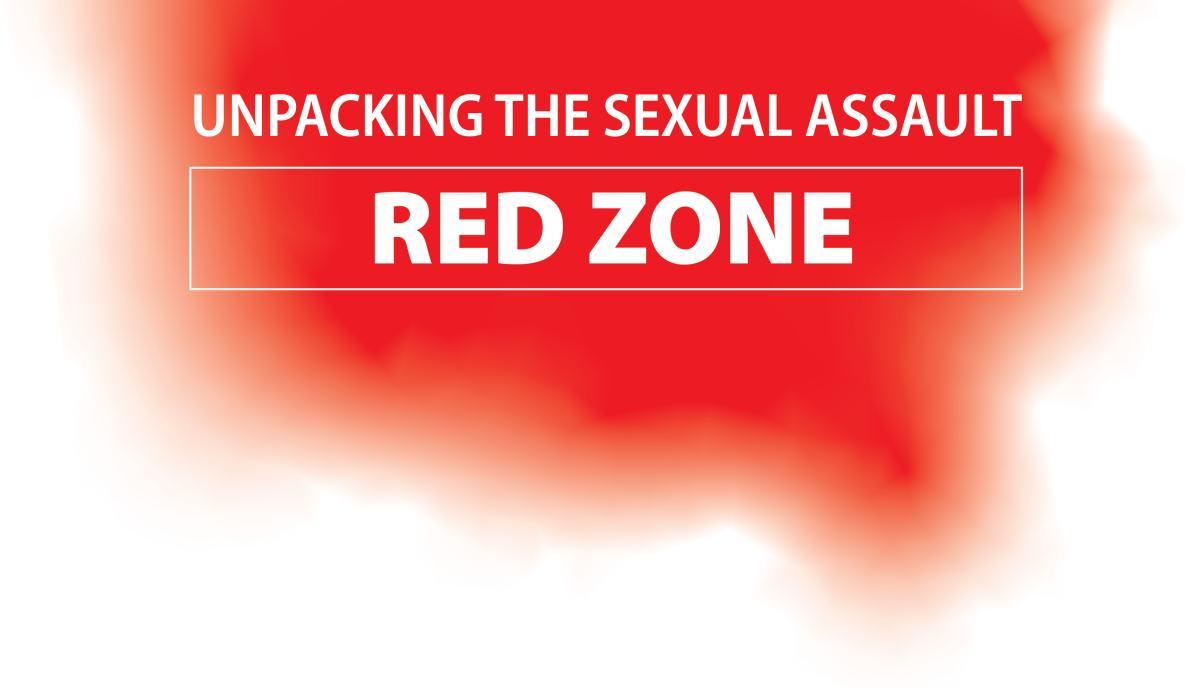Editor’s Note: This article contains reference to sexual assault and interpersonal violence.
The red zone is a national phenomenon in which universities experience a spike in reported sexual assault cases between the beginning of the school year to Thanksgiving break. The Movement, a student-led organization based out of NC State’s Women’s Center, is raising awareness about the red zone in which college students are particularly vulnerable to sexual assault.
Kylin Adams, assistant director for interpersonal violence prevention education and training at the Women’s Center, said more than 50% of sexual assault cases on college campuses occur between August and November. Kylin said a common reason for the increase in sexual assault cases on campus can be due to the unfamiliarity of a new area for new students.
“It’s just a time where people are kind of navigating campus,” Adams said. “New students are still building those support networks on campus, and don’t know the resources quite as well, or are still building, commuting, figuring out where to go. That makes them a little bit more vulnerable, so perhaps experiencing interpersonal violence.”
The national student-led organization PAVE, or Promoting Awareness and Victim Empowerment, reports that nearly one in every 30 female first-year students will experience sexual violence before their first midterm exam. Over 40% of men and 70% of non-binary students also experience sexual assault during the red zone.
Jordan Abernathy, a third-year studying anthropology and director of communications for The Movement, said although statistics are important, relying on them firsthand can lead to bias.
“While statistics do exist on campus, the number is probably lower than what actually has happened,” Abernathy said. “A lot of survivors don’t come forward, or they don’t report it in any official manner.”
Laura Roman-Rantz, a fourth-year studying English and director of administration for The Movement, said the local community of college campuses can impact the narrative of the red zone.
“I think it’s really important to acknowledge that a lot of harassment is cultivated by the local culture and the local community, and in that regard, the way that we think about certain things,” Roman-Rantz said. “So when we have language, for instance, that is specifically created to that target women, such as ‘slut’ or ‘whore,’ then it cultivates this idea that women are sexualized or subjected to that sort of treatment and that it is okay to refer to them in those contexts, but in reality, women have their own agency.”
Danica Plihcik, a third-year studying anthropology and director of outreach for The Movement, said there should be a safe places at NC State for conversations surrounding sexual assault that foster a welcoming communities.
Although conversations are needed to stop the stigma, Abernathy said victim blaming can play a part in the process.
“It’s really important that we’re not blaming victims,” Abernathy said. “Especially, I think parents, even out of concern, can be like, ‘This is a scary time. Don’t go out, don’t go to parties,’ but if you’re not going out or you’re not going to parties, you’re not making connections. You’re not building support systems, and that can even lead to an even bigger thing.”
Abernathy said it’s important for students to educate themselves because everyone is connected to the red zone.
“Even if you don’t think you’re connected to it in a way, you are,” Abernathy said. “You’re either part of a system who’s allowing it to happen, or somebody in your life, unknowingly, has been a victim or a perpetrator of [interpersonal violence], so it’s important to educate yourself. And don’t be like, ‘Oh, this doesn’t apply to me.’ It 100% applies to you, because it’s a community issue.”
Adams said a major goal for The Movement is to reach every student and organization possible when it comes to resources but can be complicated when getting other organizations involved.
“So oftentimes, athletes or Greek life are those target communities that we often work to build connections with,” Adams said. “But those are also communities that oftentimes are inundated with training constantly, and there’s a very large number of students who maybe aren’t as highly involved in various organizations or maybe are working and so they’re not in these spaces where they’re constantly being trained on things that get completely missed with our training.”
Plihcik said The Movement and the Women’s Center are available to all genders needing resources and encourages students to reach out for help.
The Movement offers several expressive workshops, educational presentations and weekly meetings to educate students about interpersonal violence on campus and offer support for survivors. More information can be found on their website.
If you or someone you know is experiencing relationship violence, sexual violence, stalking or any other form of interpersonal violence and are in need of advocacy services, the NC State Women’s Center has trained advocates available to offer crisis intervention, emotional support, resources and referrals.
Students can contact the 24/7 Sexual Assault Helpline at 919-515-4444 or email ncsuadvocate@ncsu.edu to schedule an appointment with an advocate.
Advocacy services through the NC State Women’s Center are available for all students inclusive of all gender identities and sexual orientations.
For more information on advocacy services, please visit go.ncsu.edu/supportsurvivors. If you would like to talk to a confidential resource, you can also connect with the NC State Counseling Center at 919-515-2423. You may also visit go.ncsu.edu/safe for additional information on resources and reporting options.








